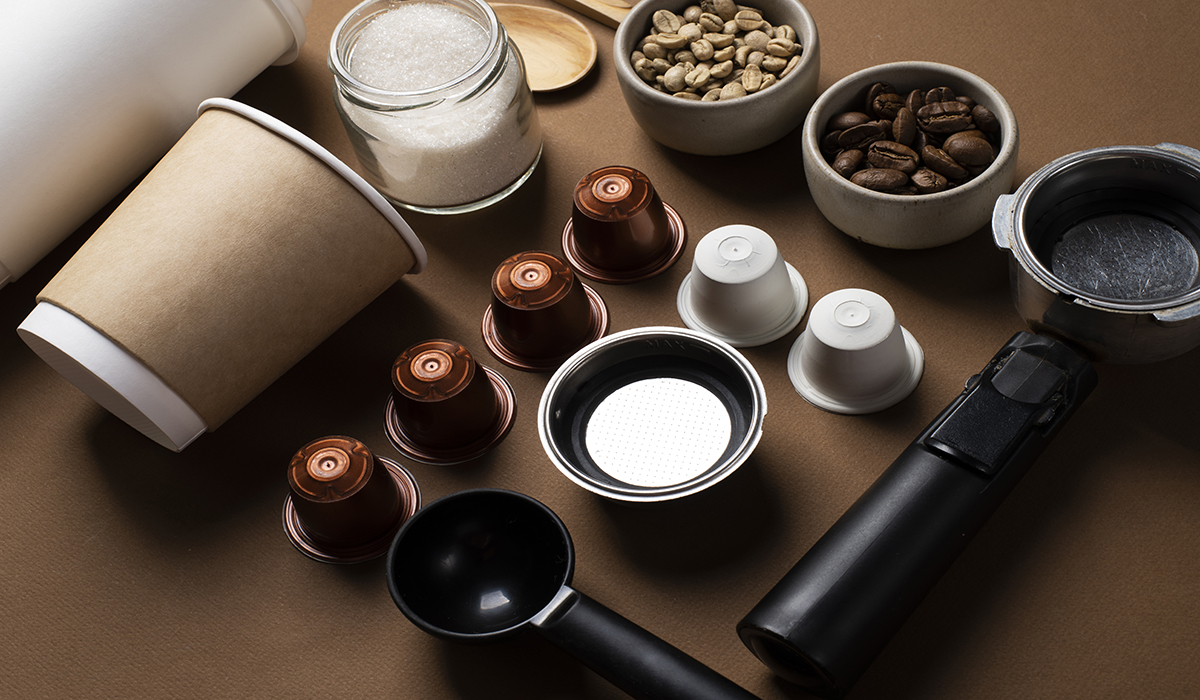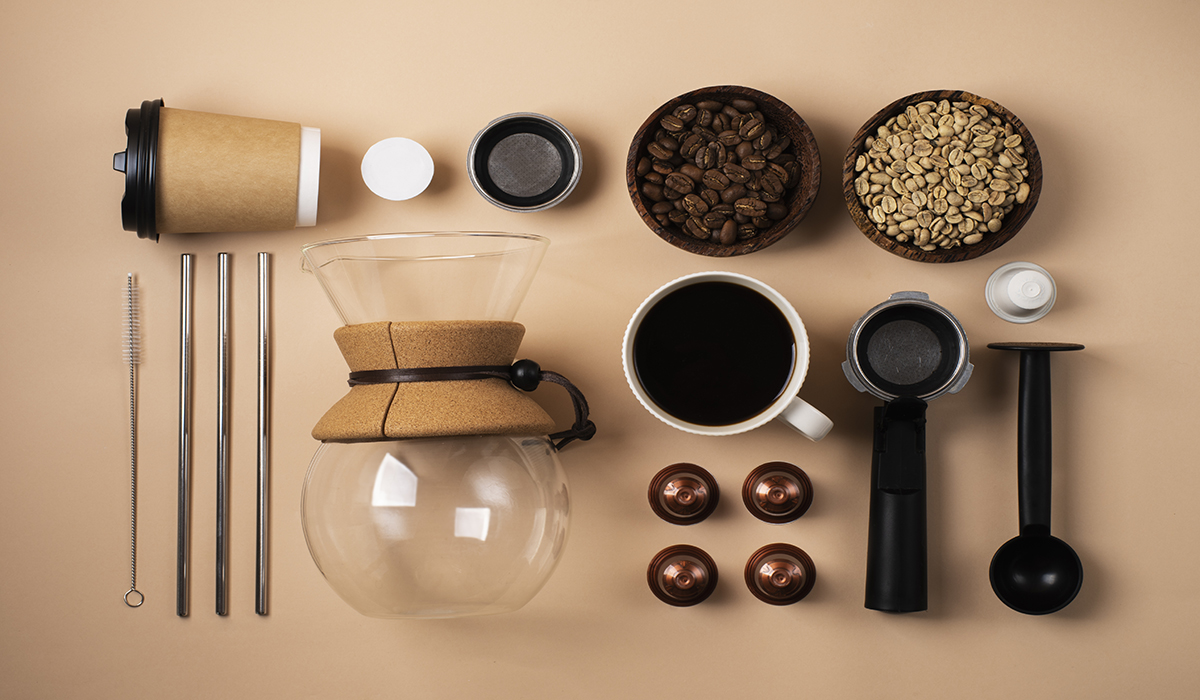The diversity of 45 coffee products across the three brands Opera, Felicita Coffee, and Diamante Coffee

Coffee, as one of the world’s most popular beverages, has evolved beyond being a simple drink into a multifaceted experience of flavor, aroma, and culture. Various brands leverage technical expertise and craftsmanship to offer diverse, high-quality products, each reflecting a unique lifestyle and palate. In this article, we explore the wide range of coffee products offered by three renowned brands: Diamante Coffee, Felicita Coffee, and Opera, all under the umbrella of Parto Padideh Company. Together, they present a collection of 45 diverse products designed to meet the varied needs of coffee consumers—from professional baristas and coffee enthusiasts to home drinkers.
Each brand employs its own distinctive strategy, ranging from specialty single-origin coffees to affordable blends and innovative packaging solutions, thereby delivering a broad spectrum of flavors and brewing methods to their audiences. This comprehensive overview will delve into the unique qualities and product diversity of these brands, highlighting how they cater to different tastes and coffee preparation preferences.
Variety of Coffee Products in Three Brands: Diamante, Felicita, and Opera
Coffee is no longer just a simple beverage. Today, every cup of coffee tells its own story. In this article, we explore the variety of coffee products across three coffee brands, each narrating a unique flavor of this popular drink. The 45 diverse products of Parto Padideh Company, born out of experience and expertise, meet the needs of a wide range of consumers—from espresso enthusiasts to lovers of Turkish coffee and iced coffee.
Diamante Coffee: A Story of Authenticity
Diamante is for those who truly understand coffee. This brand, focusing on Arabica beans, produces coffees with unique aroma and flavor, distinguishing its range of specialty coffee products. Each Diamante Specialty Coffee bean is carefully selected and undergoes a long quality control process to reach professional baristas. When we talk about Diamante Coffee, we mean coffee designed specifically for specialty cafes.
Behind every cup of Diamante Coffee Blend lies advanced air roasting technology. The beans are roasted at precise temperatures between 200 to 250 degrees Celsius. This method, coupled with strict temperature and time control, ensures each bean is roasted uniformly. The result? Coffee that tastes exactly as it should in every cup. Diamante Coffee falls under the category of 100% Arabica beans, prized for their complex aroma and pleasant acidity, commonly used in specialty coffee shops.
Felicita: Coffee for Every Taste
The 17 diverse products of Felicita Coffee are designed for cafes that want to offer good taste at a balanced price. This collection features various blends and coffee types, each crafted for specific palates. Felicita blended coffee uses a combination of Arabica and Robusta beans, offering a notable example of the difference between Arabica and Robusta coffees. Robusta, with higher caffeine content and a stronger bitter taste, plays a key role in Felicita Robusta Coffee, giving its espressos a richer crema.
This brand guarantees taste consistency through advanced quality control systems. Sixty precise electronic eyes inspect every single bean to ensure only healthy and uniform beans reach packaging. After roasting, the coffees are stored in specialized silos to allow the natural degassing process.
Opera: 27 Products for Iranian Homes
With 27 diverse products, Opera brings the coffee world into homes. Designed for home use, this brand offers a full range: from whole beans to instant powders, from coffee capsules to drip and Turkish coffee. Each Opera product is designed with the needs of household consumers in mind.
This brand understands that coffee at home must be both easy to prepare and flavorful. Packaging innovation is Opera’s strong point. Using nitrogen gas in packaging preserves the aroma and flavor until consumption. Opera’s products represent the full spectrum of coffee packaging types, so each family can select the right size—from 100-gram packs for beginners to family-size packs for serious coffee lovers.
Specialized Production: How These 45 Coffee Products Are Made
All three brands use an advanced coffee production line centered on Italian roasting machines. These roasters are specially calibrated for espresso, Turkish coffee, and drip coffee — three common preparation methods. This specialized infrastructure allows for producing coffee in various styles, significantly enhancing the diversity of coffee products. The air-roast technology ensures uniform roasting, while smart temperature and time control enable storing multiple roasting profiles. This means each product can have its own roast level, from light roasts for specialty coffees to dark roasts for espresso blends, all aimed at satisfying different taste preferences.
After roasting, coffees undergo multiple quality control stages. Strong magnets remove metals, stone separators filter out heavy impurities, and 60 electronic eyes detect defective beans. Following separation, coffees are stored in special silos to naturally degas, essential for balanced flavor and quality maintenance among the wide variety of coffee products.
Coffee Product Range: From Espresso to Turkish Coffee
The 45 coffee products across these three brands cover a full spectrum of customer needs—from Diamante Espresso for cafes to Opera’s powdered Turkish coffee for home use. Each product is designed with precise customer needs in mind. For instance, Turkish coffee is sold as powder because grinding coffee at home or in cafes is difficult.
Conversely, espresso coffees are sold as whole beans to allow baristas to grind fresh. This packaging variety ranges from small 100-gram packs to 1-kilogram bags for cafes. Coffee varieties in cafes include espresso, americano, latte, cappuccino, iced coffee, and French coffee. Each drink requires a specific coffee type and grind size, well covered by Diamante Coffee and Felicita Coffee. Coffee capsules for home machines, drip coffee for coffee maker fans, and Turkish coffee for traditional lovers are all produced with unique formulas to achieve desired flavors.
For more about popular cafe coffees and preparation methods, consider:
- Espresso: Extracted using high pressure from medium-roasted beans.
- Latte: A blend of espresso and steamed milk, topped with milk foam.
- French Coffee: Made with a filter or French press, with a mild and light taste.
These brands have designed products matching various tastes, brewing methods, and applications, each with a unique formula to deliver the intended flavor.
Unique Characteristics of Each Brand’s Coffee
At Diamante, specialty coffees are made mostly from Arabica beans, roasted medium to light to preserve each bean’s distinct aroma and flavor. Baristas can craft different espresso styles—from single-origin Brazilian to special blends for latte and cappuccino.
Each Diamante Coffee Blend package tells its own story and is designed for specific brewing methods. Felicita Coffee focuses on balanced blends, mixing Arabica and Robusta beans to create a balanced and affordable taste. Their coffees are typically medium to dark roast, suitable for espresso and milk-based drinks. Café owners can rely on Felicita Coffee for consistent flavor. Unlike Diamante, Felicita aims to balance the differences between coffee types; the contrast between Felicita Robusta Coffee and Felicita Arabica Coffee plays a crucial role, as each type has unique flavor, aroma, and caffeine characteristics that combine to create a special, balanced taste. Felicita coffees suit drinks like iced coffee and latte macchiato well.
Innovation in Packaging and Storage
All coffee products use advanced packaging systems. Nitrogen injection during packaging removes air, preventing oxidation. This technology prolongs coffee shelf life and preserves aroma and flavor until consumption. Each package has a one-way valve allowing gas to escape but blocking air entry.
Roasted beans are stored in special silos for natural degassing lasting 24 to 72 hours—vital for balanced taste. Temperature and humidity are carefully controlled to maintain quality. Each coffee pack receives a tracking code with production and expiration dates.
Usage Guide for 45 Coffee Products
Proper use requires understanding product features. Diamante Coffee is designed for professional espresso machines and must be ground with a professional grinder. Fine grind is recommended for espresso and medium grind for drip machines.
Brewing time is 25-30 seconds with water temperature between 90 to 96°C.
Felicita Coffee offers more flexibility and can be used in semi-professional espresso machines, home coffee makers, and moka pots. Grind size and water temperature are similar to Diamante but Felicita coffees tolerate minor brewing condition changes better.
For cold coffee enthusiasts, knowing how to prepare iced coffee is essential. Combine Felicita Espresso with ice cubes and milk or syrup to enjoy iced coffee. Opera offers several ready mixes for iced coffee as well.
Comparison Table of Diamante, Felicita, and Opera Coffee Brands
| Features | Diamante | Felicita | Opera |
|---|---|---|---|
| Bean Type | Specialty Arabica | Arabica and Robusta blend | Arabica and Robusta for home use |
| Roast Level | Medium to light | Medium to dark | Medium |
| Packaging Type | Specialty cafe bags | Economical cafe packs | From 100g packs to family-size packages |
| Suitable For | Specialty cafes and baristas | General cafes with varied tastes | Home consumption |
| Products | Espresso, single-origin, latte | Espresso, moka pot, home coffee makers | Turkish coffee, capsules, drip, instant |
| Brand Focus | Quality, specialty control | Balanced taste, cost-effectiveness | Convenience for home use |
| Quality Control | Air roast technology, precise screening | 60 electronic eyes, precise degassing | Nitrogen packaging for longer shelf life |
Technical Specifications and Storage Methods
Each coffee pack should be stored under specific conditions. Ideal temperature ranges between 20 to 25°C with humidity below 60%. Coffee must be kept away from direct sunlight. Once opened, store coffee in an airtight container with a one-way valve. Ground coffee should be used more quickly.
Whole beans remain usable up to three months after opening, while ground coffee lasts about one month. Coffee capsules should be kept in a dry, cool place. Expiry dates on packs assume ideal storage; improper storage can reduce coffee life.
Specialized Summary of Products
These 45 coffee products in three brands are designed with deep market understanding and considering the benefits and drawbacks of coffee to provide a balanced and health-conscious experience. Special attention has been paid to product variety to meet different consumption styles. Diamante Specialty Coffee produces 85% of its products from Arabica beans with a roast level between 65 to 75 Agtron, meaning medium-light roast that preserves natural acidity and fruity flavors.
Felicita Specialty Coffee offers 17 diverse products, typically blending 60% Arabica and 40% Robusta beans. Their roast level ranges from 45 to 55 Agtron, considered medium-dark, suitable for producing thick crema in espresso and representing a variety tailored to general tastes.


